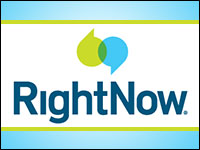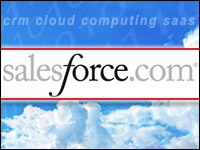
Part 1 of this series on getting started with CRM addresses factors to consider when deciding whether the time is right to take the plunge.Part 2 offers advice on how to choose the right CRM tool.Part 3 provides some guidance on preparing for contract negotiations.Part 4 tackles the all-important step of embarking on an implementation.Part 5 considers how to rescue a project at risk of failure.Part 6 suggests some effective ways to get your sales staff enthusiastic about CRM.
Once a small business successfully implements a new CRM solution, the next challenge will be maintaining it. Cloud computing promises to make the implementation process less painful, and it should also lessen the burden of system maintenance for the small enterprise.
Traditional CRM tools typically required a small business to purchase in-house servers and either keep IT people on staff or partner with another company to handle system maintenance, Brent Leary, cofounder of CRM Essentials, told CRM Buyer. However, the rise of the cloud and on-demand computing, removes that requirement, because a good vendor will dedicate highly skilled technical experts to maintain the system.
“It’s way better than any small business can do,” Leary said. A SaaS vendor typically handles backups, application maintenance and updates.
“A small business doesn’t have time to do that,” Sean Whitely, vice president of product marketing at Salesforce.com, told CRM Buyer.
Choosing a cloud system means no in-house responsibility for maintenance, upgrades or patches, greatly reducing capital expenditures. The small company can then focus on its business and not the tool, Whitely said.
Small, Simple and Friendly
The technical skills of employees at Harvest Foods vary, Healthcare Specialist Jennifer Bunce told CRM Buyer.
When researching the various options for a CRM tool, Harvest Foods knew if needed a small, simple and user-friendly solution.
“SalesNexus seemed to be the best fit for us,” said Bunce, who described how the staff previously used spreadsheets for CRM activities, a process they found very cumbersome. “It’s much easier for them now. It was very easy for them to catch on.”
One large group training session taught employees how to use the Web-based tool to pull data immediately out of the system, run reports and conduct email campaigns, she explained.
Employees only need to use two screens on a daily basis.
Using a CRM system resulted in huge benefits, including savings on productivity and efficiency, noted Bunce. It helped them speed up their processes, giving them more time to make sales calls. They add information immediately following a sales call, she noted. The time saved benefits the employees because they do not have to take work home anymore.
It also allows them to become more mobile, added Bunce. The salespeople now use netbook computers that they can carry with them.
The Advantage of Low-Maintenance Systems
“We don’t have an IT staff,” Bunce pointed out, adding that SalesNexus handles its maintenance and has been very responsive with support issues.
In addition to live chat support, SalesNexus offers online videos, webinars and phone support, she noted.
“They’ll spend time to walk you through some things,” she said.
Types of Maintenance
The type of system maintenance that needs to be done for a CRM tool depends on the system chosen, Sheryl Kingstone, director of the enterprise research group for Yankee Group, told CRM Buyer. Web-based systems pose fewer challenges since typical tasks such as updates and bug fixes happen in the background.
With Web-based systems, the maintenance the customer performs is business maintenance rather than technical maintenance, Salesforce.com’s Whitely stated. Such maintenance would include data cleanup, creating and maintaining reports, tracking usage, ensuring the system is a good fit for business needs, and developing good processes, he said.
Maintenance is best left to the vendor, according to Matthew Arndt, who uses the Web-based Infusionsoft for his company, Turbo Social Media
Turbo doesn’t even do in-house backups, he told CRM Buyer.
“We probably should,” Arndt admitted, but he likes the Infusionsoft back-up process, and he can export data from the system if needed.
Also, Turbo has a good relationship with the vendor, so he feels comfortable entrusting data with Infusionsoft, he said.
Typical system maintenance issues such as backing up data are less of a worry for companies using Web-based systems, Whitely pointed out.
This is only true, however, if the vendor maintains 100 percent compliance with backup standards as Salesforce.com does, he added.
In-house back up processes are still a good idea, suggested CRM Essentials’ Leary, in case a customer’s relationship with a vendor goes sour — or in case a small vendor goes out of business. It is always a good idea to guard against worst-case scenarios and ensure data is safe.
“It really does make sense to have regular backup processes,” Leary stressed.
Most CRM providers make export easy, but custom fields or objects might need utilities to export them, he added.
Although maintenance may not be as daunting with Web-based applications as with a traditional service, new maintenance issues will emerge, said Leary. For instance, managing apps for mobile devices will become more common.
Consider Support Needs and Costs
Some companies charge extra for support, and that should be factored into a company’s decision-making process when choosing a CRM vendor, suggested Harvest Foods’ Bunce.
SalesNexus offers free support, and that was a major reason her company chose it, she explained. Other vendors may charge for support.
“Know all your added costs up front before making any commitments,” Bunce advised.
Small businesses should keep in mind that they are buying the vendor along with the product. Consider the types of support offered by a potential vendor during the selection process, said Leary.
“You’re really buying a relationship,” he remarked.
The vendor should provide best practices, training, support contact information and hours of support. The small business should understand the level of support it needs, he said. “That’s part of the whole selection process.”
Customer Camaraderie
Cloud computing facilitates the development of online communities of users who share tips about system use, maintenance and best practices. A number of vendors allow customers to create such communities, Leary noted.
Salesforce.com has an idea exchange for receiving feedback from customers, saiid Whitely.
An idea offered on the exchange for integration with Google apps took off like wildfire, he noted.
Another networking tool the company offers is Salesforce Chatter. It operates like Facebook but is a closed community dedicated to a single company’s users, Whitely said.
Infusionsoft has a whole community around its system, according to Arndt.
“All users help each other out, ” he said.
Customize and Upgrade Carefully
Another benefit of cloud computing is ease of customization, according to Leary. Salesforce.com, for example, now has a platform that allows CRM Essentials to create widgets and components.
“These platforms are enabling you to customize your system to no end,” said Salesforce.com’s Whitely.
While greater customization and more sophisticated products are huge benefits for small businesses, companies should also consider the added costs and greater maintenance that could result, said Yankee Group’s Kingstone.
Companies that go overboard with features end up with “a higher total cost of ownership,” she warned.
Small businesses should also be careful when upgrading software. They could experience problems if they upgrade software that is integrated with the CRM system, Leary pointed out.
“Not everything is running on the cloud,” he noted. Businesses need to consider the impact an upgrade is likely to have.























































For startups and SMBs which are focused on customer support, a CRM may not be the right way to go and a helpdesk would be a good solution. I came across this blog post in the HappyFox website, you might want to look at it: http://www.happyfox.com/blog/5-reasons-to-choose-a-helpdesk-app-over-a-crm/.
Agree with all advantages detailed here. Today’s cloud technology allows small and medium business to benefit from enterprise class functionality at lower costs. Intelestream, Inc., which developed the online CRM intelecrm, has a unique pricing model that charges a flat fee per month for unlimited users. Subscribers are billed according to packaged pricing based on the AM ount of information that they access and the number of records they have. Take advantage of our 30 day trial by visiting http://www.intelestream.net/intelecrm Best!